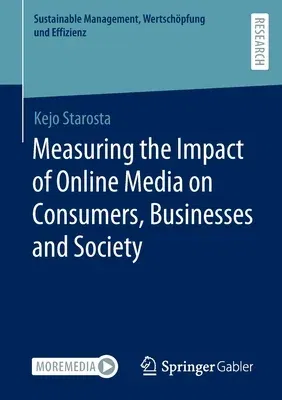Kejo Starosta
(Author)Measuring the Impact of Online Media on Consumers, Businesses and Society (2022)Paperback - 2022, 3 March 2022

Qty
1
Turbo
Ships in 2 - 3 days
In Stock
Free Delivery
Cash on Delivery
15 Days
Free Returns
Secure Checkout
Part of Series
Sustainable Management, Wertschöpfung Und Effizienz
Print Length
282 pages
Language
English
Publisher
Springer Gabler
Date Published
3 Mar 2022
ISBN-10
3658367288
ISBN-13
9783658367282
Description
Product Details
Author:
Book Edition:
2022
Book Format:
Paperback
Country of Origin:
NL
Date Published:
3 March 2022
Dimensions:
21.01 x
14.81 x
1.78 cm
ISBN-10:
3658367288
ISBN-13:
9783658367282
Language:
English
Location:
Wiesbaden
Pages:
282
Publisher:
Weight:
412.77 gm

